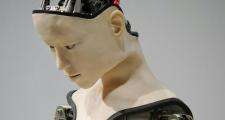Social work’s values will be vital to make the rise of the machines ethical

Those who have kept pace with the pioneering work of a group of social workers, collectively known as husITa, will be aware that technological advances do not always align with human values and human ethics.
husITa exists to ensure that advances in technology work for the benefit of humanity, rather than against it. Social work, as a profession, however, has still not fully grasped the tensions and the threats of innovation.
For example, the problems with using ‘free’ platforms and applications in professional practice, and the potential this creates for ‘double disadvantage’ - a phrase to describe the cost of using platforms that mine and repurpose peoples’ data, including those who are already vulnerable to surveillance, welfare sanctions, and punitive processes.
The instinct to develop technological solutions for human problems remains central to our evolution and has been evident from the pre-industrial era to the current fourth industrial revolution, which is witnessing high-powered automation and human-machine integration.
Once fictional concepts are becoming tangible realities. For example George Orwell predicted current issues such as Big Brother surveillance, misinformation, loss of privacy, and social control 80 years ago in his dystopian masterpiece 1984.
As recently acknowledged by the World Economic Forum, while artificial intelligence “has the potential to improve human existence, it at the same time threatens to deepen social divides and put millions of people out of work”.
And while human services professions such as social work fare well in these predictions, a significant amount of labour will benefit from automation. However, and bearing in mind the risks of double disadvantage, social work should proceed with caution, with an eye on the potential for data profiling, and how this might exclude people from other health and social care ‘benefits.’
The oscillation between techno-pessimism and techno-optimism is explored by Brian Christian in The Alignment Problem. At the UK AI Summit last year, AI entrepreneur and researcher Mustafa Suleyman warned: “For most of history the challenge of technology lay in creating and unleashing its power. That has now flipped; the challenge of technology today is about containing its unleashed power, ensuring that it continues to serve us and our planet.”
How social work and social care harness the potential of new and emerging technologies such as AI will depend on our ability to translate our knowledge, values and skills in ways that align with our purpose.
The 2023 US AI Blueprint is a robust starting point for informed and ethical AI procurement, and implementation. It provides a framework which includes:
- rights to safe and effective automated systems
- rights to protection from algorithmic discrimination
- rights to data privacy
- rights to notice that an automated system is being used
- the right to opt out of automated systems in favour of a human alternative
How we upskill and educate existing and future social workers is also crucial. We cannot assume what worked and was appropriate in the past will work and be appropriate for our future.
Every aspect of the regulatory framework and social work curriculum will need to be reviewed through a data, digital, and disadvantage lens, to ensure that graduates are equipped to navigate the potentialities and perils of the hyperconnected world.
This will need to consider how human development, connection and socialisation has changed, and how this is reflected in what and how we teach about these aspects of social work. It will be significant to practitioner preparedness, and their ability to remain close to our professional values.
Perhaps for now it is wise to remain cautious about the implementation of AI in human services professions like social work, other than where they can reduce time-consuming administrative tasks that increase human-to-human interaction. But I look forward to a time where human-machine integration truly operates to serve humanity, and it is here that social work has a role.
Amanda Taylor-Beswick is professor of digital and social sciences and director for the Centre of Digital Transformation at the University of Cumbria
